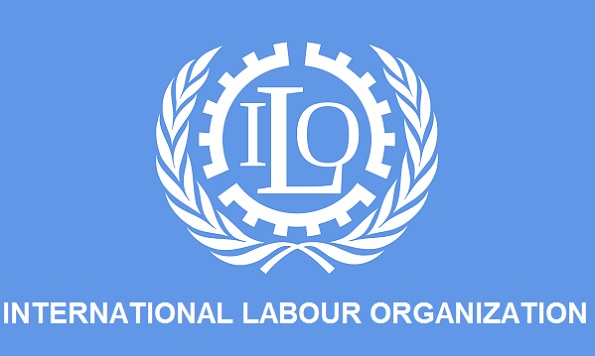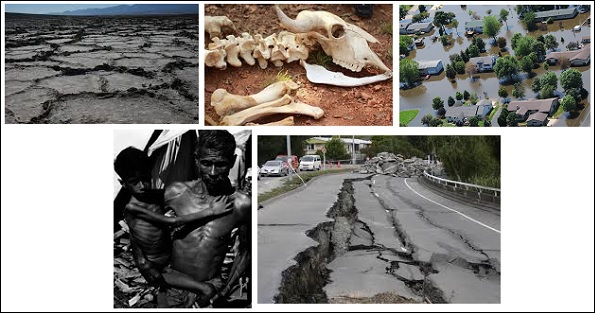
- Engineering Ethics - Home
- Engineering Ethics - Introduction
- Engineering Ethics - Moral Issues
- Moral Dilemmas
- Moral Autonomy
- Kohlberg’s Theory
- Heinz’s Dilemma
- Engineering Ethics - Gilligan’s Theory
- Professions and Professionalism
- Engineering Ethics - Ethical Theories
- Social Experimentation
- Balanced Outlook on Law
- Responsibility for Safety
- Chernobyl’s Case Study
- Bhopal’s Gas Tragedy
- Responsibilities of Engineers
- Engineering Ethics - Confidentiality
- Rights of Engineers
- Engineering Ethics - Global Issues
- Moral Leadership
Engineering Ethics - Global Issues
In this chapter, let us the discuss the global issues concerning Engineering Ethics. The concept of globalization increases with the integration of nations through trade, investment, transfer of technology and exchange of ideas and culture.
So far as the engineers and companies are concerned, the Multinational Companies play crucial roles in promoting globalization. The ethics related to business, environment and computer will also be discussed in this chapter.
Multinational Companies
Multinational Companies, also called Transnational Companies are the companies that have a main branch in a country called the Home country and its other branches in different companies called the Host countries, as International Labor Organization (ILO) defines it.

Multinational Corporations can have a powerful influence in local economies, and even the world economy, and play an important role in enhancing international relations and globalization. These MNCs also get tax benefits, pledges of governmental assistance or improved infrastructure or lax environmental and labor standards enforcement as they help in increasing the national GDP. MNCs should produce high degree of operational efficiency pertaining to high standards in the jurisdiction of the place where they are. The wages, safety measures, employee benefits are all should be taken care of by the MNCs.
There have been instances of corporate and government confrontations when governments tried to force MNCs to make their intellectual property public in an effort to gain technology for local entrepreneurs. Such an idea paves way for conflicts where either the government has changed its rules or the companies have withdrawn their investments. Multinational corporate lobbying is directed at a range of business concerns, from tariff structures to environmental regulations. The threat of nationalization or changes in local business laws and regulations can limit a MNCs power.
Business Ethics
Ethics are the set of rules of conduct that the concerning persons need to abide by. These ethics when related to the field of business, are called Business Ethics. Business ethics are similar to professional ethics. Business ethics are related to the aspects of business dealing with all employees in an ethical manner.
An organization is expected to follow certain ethical values in its functioning, establishment, employee welfare, operations, environmental factors, waste management and the issues related to the people living around, etc. These factors affect the reputation of the company and indirectly affect the value of its shares in the global market. The main principles of admirable business ethics can be - being trustful, open minded, meeting obligations, having the documents clear with good accounting control, etc.
The general business ethics include the following aspects −
Be it any industry or a corporate office, the infrastructure and the working environment should be comfortable and encouraging.
The safety precautions and maintenance of the organization are to be taken care of.
The work and the skills of the employees are to be identified and encouraged for the development of the organization.
A hierarchical procedure is to be followed, maintaining the ethical standards for the execution of work.
The product maintenance right from the procurement raw material to the dispatch of product should be done in a standard procedure uninfluenced by any unethical issues.
No tolerance should be there for any kind of unethical behavior or influences that affect the production and organizational standards.
To encourage the activities that promote social good and are environment-friendly.
Environmental Ethics
Globalization and industrialization have impacted the environment on a very large scale. The long term effects of the environment are usually neglected unless it is gross and immediate effect.
We are getting habituated to the ill-effects of pollution and industrial negligence shows on our environment. The aftermath can be seen in acid rains, water and land contamination, effect on crops and food sources, the cattle getting affected, the drying of lakes and canals, floods, drought, tsunamis and earthquakes due to drilling of underground wealth, the effect on marine being, the effect on ozone and the melting of snow mountains due to global warming, etc. The aftermath can be an alarming call for the required environmental changes.

Engineers need to show some responsibility towards the environment and should be ethical in their approach and find mitigating solutions for the protection of environment. Organizations should support the activities that promote environment protection. The environment ethics include −
- The study of moral issues concerning the environment
- Moral perspectives, beliefs and attitudes concerning those issues.
Let us now consider the ethics that need to be followed by a corporation dealing with the manufacture of computers. The organization needs to set priorities for the efficient use of resources, the design of the energy-efficient products, easy disassembly for recycling and waste minimization. The application of high standards throughout its operation and placing priority to companies that have an environmental concern can also extend the support for environmental protection.
Computer Ethics
Computers with Internet raise a host of difficult moral issues, many of them connected with basic moral concerns such as free speech, privacy, respect for property, informed consent and harm. To evaluate and deal with these issues, a new area of applied ethics called Computer Ethics has come up. These ethics are related to all the computer professionals such as programmers, analysts, operators, designers, etc. along with the users.
The ten commandments of Computer Ethics, created in 1992 by the Computer Ethics Institute consists of the following −
One should never use a computer −
To harm the people (anti-social activities)
To interfere with others work (illegal manipulations)
To snoop into others files (malware)
To steal a computer/data (hacking)
To bear false witness (manipulation and morphing)
To use/ copy a software you didnt pay for (like illegal downloads and usages)
To use or copy others software without compensations (illegal pirated versions)
To use others intellectual output inappropriately (violating IPR)
Doing without thinking of social consequences of the program being written (libeling)
Always use a computer ensuring consideration and respect towards fellow beings.
However, these ethics are facing lax in todays world. A very small section of concerned individuals seems to be following these ethics. A large section seems to be violating these ethics. With this, there is an unprecedented increase in cybercrime.
Role of Computers in Technological Development
In this section, we will discuss the role of Computers in Technological Development. The limitations of Internet usage and free speech are to be known clearly by every netizen. In this digital era, the morals expected from a human being are the basic tools that control the unethical and sleazy manner of handling the internet.
Internet which is now a global network of networks, initially used the infrastructure of the telephone system and is now being handled by many telecommunication systems by wire, fiber or wireless systems. The Internet provides a spring of new ways to be in contact with other people and with sources of information. It has also created greater convenience in ordering consumer items, paying bills and social experimentstrading stocks and bonds. Like other major , it also has raised a host of new issues. One set of issues centers on free speech, including control of obscene forms of pornography, hate speech, spam which is unwanted commercial speech and libel. Computers contribute to greater centralization or decentralization insofar as human decision makers direct them.
There come issues which call for trouble wherein, computers are used in embezzlement and other forms of stealing money or financial assets. The issues concerning theft of software and information is again a similar one. The computers are centrally involved when an unauthorized person uses a telephone computer system to obtain private phone numbers or when maliciously alters or scrambles the programming of a telephone computer. In todays world, malicious people have come up with not one but various ways of exploiting money, goods, services, assets, etc. through the computers and internet. The Internet besides easing our work has also paved way to gather an individuals confidential details easily.
The two main factors that make computers troublesome are their speed and geographical coverage, which allows the masses to be victimized further. The difficulty lies in tracing the underlying transactions to apprehend the thieves. This problem is compounded when the communication lines linking the computers involved cross national boundaries.
The most commonly discussed cases of computer abuse are instances such as −
- The stealing or cheating by employees at work.
- The stealing by non-employees or former employees.
- The stealing from or cheating clients and consumers.
- The violation of contracts for computers sales or services.
- The many conspiracies to use computer networks to engage in widespread fraud.
Alarmingly, the Internet has led to an explosion of identity theft, in which personal information is obtained and used to forge documents and commit fraud.
Privacy Factors
The misuse of Internet also influences privacy factors. The illegal attackers or hackers get access to restricted data which is a security threat.
The inappropriate access which leads to security breach in an office leads to the leakage of confidential information which might severely affect the growth of the company.
The hackers who crack the security and get unauthorized entry into the highly secured information zone, tend to copy the content or they may change the content, delete the content or get it affected with virus as soon as the authorized personnel opens the file.
The different types of viruses such as Trojan Horse, Memory Resident, Overwrite, Browser Hijacker, Directory Virus, etc. can create instances wherein, the data on computer system get affected in various ways.
The legitimate access to information is restricted to protect individual privacy, national security and freedom within a capitalist economy to protect proprietary information essential in pursuing corporate goals.
The Privacy Act of 1947 prohibits the information contained in government files from being used for purposes beyond those for which it was originally gathered.
Weapons Development
Based on the size of expenditures, direct or indirect involvement of engineers and innovative developments, military technology is an area that calls for serious discussion on engineering ethics. As modern weapons of war progressed through catapults, cannons, machine guns and bombs released from airplanes and missiles to reach further and further, the soldiers firing them were less likely to see the individual human beings, the soldiers as well as citizens, they had as their general target.
For some engineers, their involvement with weapons develop conflicts with personal conscience, such as knowing that making weapons in a company, is the job which would be done by someone else if he doesnt do and that cannot change the results. Though working in a toxic chemical manufacturing plant can make you feel guilty, the idea abolishing this disastrous thing once you become the CEO of the company, makes you get the feeling of being in good books, though you might or might not do that when the time comes.
There can also be instances where an engineer can feel that the development of weapons is an expression of conscientious participation in national defense. An engineer who is a specialist in missile control and guidance, can feel proud that he is being able to help his country through his efforts in the defense industry, especially as part of the War on terrorism. In a broader context, weapons include anything used to gain an advantage over an adversary or to place them at a disadvantage. Examples include the use of sieges, tactics, and psychological weapons which reduce the morale of an enemy.
Engineers as Managers
An engineer, whether he works individually or works for a company, has to go through some ethical issues, mostly under conditions such as, conceptualization of a product, issues arising in design and testing departments, or may be on the issues involving the manufacturing, sales and services. An Engineer is responsible in promoting ethics in an organization, through framing organizational policies, responsibilities and by personal attitudes and obligations.
Suppose, an issue occurs which might lead to a conflict, an engineer or say a professional should respond pertaining to specific morals and professional ethics. An engineer should be able to work as a manager in such situations, resolving conflicts according to priorities, keeping the organizational benefits in mind. The issue must be resolved without hurting anyones feelings and by developing a mutual understanding with subtlety. Not only the engineers who act as managers or the managers alone will share the responsibility, but there lies some social responsibility to stakeholders, customers and employers of a company. They act to develop wealth as well as the welfare of the society.

Ethicists project the view that the managers responsibility is only to increase the profit of the organization, and only the engineers have the responsibility to protect the safety, health, and welfare of the public. But the manager, though an engineer or not, has the ethical responsibility to produce safe and good products (or useful service), while showing respect for fellow human beings including his employees, customers and the public. Hence, the objective for the managers and engineers is to produce valuable products that are also profitable.
Managing Conflicts
A conflict is a result of differences in opinions. Conflicts generally arise where the work is shared among more than one members. In fact, the situations of conflicts should be tolerated with patience, understood impartially and resolved by the participation by all the concerned.
When a project is distributed among a few members, the conflicts that generally occur are −
The schedule based conflicts might occur at different levels of execution of a project, depending upon the priorities and limitations at each level.
The prioritizing of projects or departments which can be arrived from end requirements may change from time to time.
The deficiency of personnel availability for certain project completion in due time may also lead to a conflict.
Conflicts that occur over technical, economic, and time factors such as cost, time, and performance level.
Conflict arising in administration such as authority, responsibility, accountability, and logistics required.
Conflicts of personality, human psychology and ego problems.
Conflict over expenditure and its deviations.
Picking out on the personnel creating may keep others away from the problem and doesnt affect everyone. Such personnel can be trained again or given precautions. The interest of the personnel doing a project should be focused on the ethical attitudes and morals but not on their positions. In addition, the conflicts between the personnel, can be solved by the manager who has more ways to solve it. The evaluation of the results should be based on certain specified objectives such as efficiency, quality, and customer satisfaction.
Consulting Engineers
The consulting engineers differ from the salaried engineers of an organization. These consulting engineers work in private and are paid per advice they offer or for the service they provide in a field of specialized knowledge or training. Consultants are individuals who typically work for themselves but may also be associated with a consulting firm.
Consultants can play a multi-faceted role; for example, they function as advisors, fixers, bosses, generalists, stabilizers, listeners, advisors, specialists, catalysts, managers or quasi-employees. Bringing in an expert can save time, effort and money. It has been estimated that approximately 3/4 of all companies call upon consultants at one time or another. Many companies claim that they receive a higher return for their invested dollars by using consultants for specific tasks.
A Consulting Engineer should maintain the ethical values in the profession, such as giving proper information without any ambiguities for advertisements, the allowance of small individual companies to participate in bidding and also maintaining clarity in the contingency fee which is previously agreed. The greater amount of job freedom enjoyed by consulting engineers as opposed to salaried engineers leads to wider areas of responsible decision making concerning safety.
Engineers as Advisors
Engineers may accept an assignment requiring education and/or experience outside of their own fields of competence, but their services shall be restricted to other phases of the project in which they are qualified. All other phases of such project shall be performed by qualified associates, consultants, or employees.
For an engineer to be an advisor, should study the costs and benefits of all alternatives in objective manner, study economic viability, technical feasibility, operational feasibility and social acceptability, follow honesty, and technical complicity leading to moral complicity. Then after analyzing the factors that lead to such things and also the consequences that occur, engineers can work as an advisor.
There may be various roles or models played by engineers who work as advisors. Let us now see what the roles or models are −
Hired Guns
This model highlights the clients wishes and acts accordingly. All the other factors are given less priority. Assumptions about uncertainties are inclined in a direction favorable to the clients case.
Value-Neutral Analysts
This model expresses the idea of being neutral and the avoidance of any form of advocacy towards anyone. The cost-benefit analyses if made, are to be done according to the value criteria, explicitly.
Value-Guided Advocates
This model advocates the idea that it is the responsibility of engineers to keep the public good in mind and maintain honesty about both technical facts and the values that guide their studies.
Rosemary Tong defends this model noting, Honesty is essential, both in negative sense of avoiding deception and in the positive sense of being candid in stating all relevant facts and in being truthful in how the facts are interpreted.